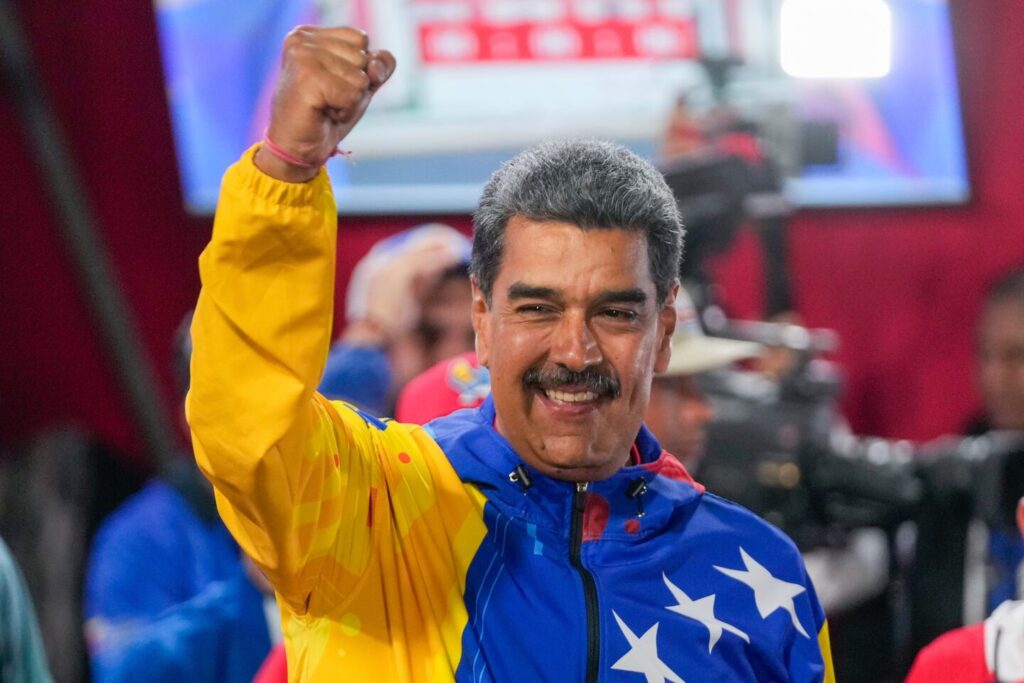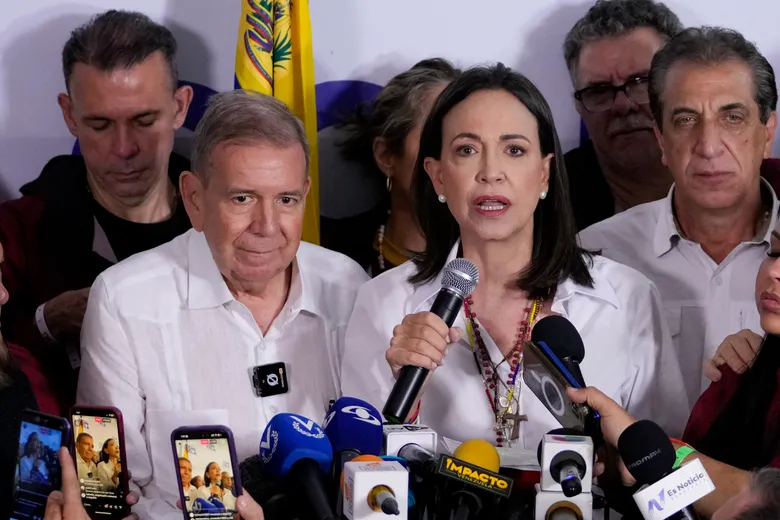Venezuela finds itself in a high-stakes political standoff following Sunday’s presidential election, with both incumbent President Nicolas Maduro and opposition candidate Edmundo González claiming victory. The disputed outcome has sparked concerns both domestically and internationally about the integrity of the electoral process.

Election officials announced Maduro as the winner with 51% of the vote, compared to 44% for González. However, the opposition, led by Maria Corina Machado, insists that González secured an “overwhelming” victory based on their own tallies from about 40% of ballot boxes.
The delay in releasing detailed vote counts has fueled suspicions and prevented independent verification of the results. This uncertainty has led several foreign governments, including the United States, to withhold recognition of the outcome.
U.S. Secretary of State Antony Blinken expressed “serious concerns that the result announced does not reflect the will or the votes of the Venezuelan people.” Similarly, Chile’s leftist leader Gabriel Boric stated that “the Maduro regime should understand that the results it published are difficult to believe.”
The election was seen by many Venezuelans as a crucial opportunity to end 25 years of single-party rule. González, a 74-year-old retired diplomat, emerged as an unlikely opposition standard-bearer after Machado was barred from running by the Maduro-controlled supreme court.
Maduro, addressing supporters at the presidential palace, accused unidentified foreign enemies of attempting to hack the voting system, though he provided no evidence to support this claim.

The election’s outcome will have significant implications for Venezuela’s future and the broader region. The country, despite possessing the world’s largest proven oil reserves, has suffered a severe economic crisis under Maduro’s leadership. Plummeting oil prices, widespread shortages, and hyperinflation have led to mass emigration, with 7.7 million Venezuelans leaving the country.
Maduro’s campaign focused on promises of economic security, citing recent improvements in currency stability and inflation rates. The International Monetary Fund forecasts 4% economic growth for Venezuela in 2024. However, most Venezuelans continue to struggle with poverty, with many earning under $200 a month in a country where basic necessities for a family of four cost an estimated $385 monthly.
The opposition, led by González and Machado, campaigned on addressing these persistent inequalities and creating jobs to entice Venezuelan emigrants to return home.
As the standoff continues, the international community watches closely. The dispute’s resolution could have far-reaching consequences for Venezuela’s political landscape, its economic recovery efforts, and its relationships with other nations, particularly regarding U.S. economic sanctions imposed after Maduro’s contested 2018 reelection.
The coming days are likely to be crucial in determining Venezuela’s path forward, as both sides wrestle for control and legitimacy in the eyes of the Venezuelan people and the world.


